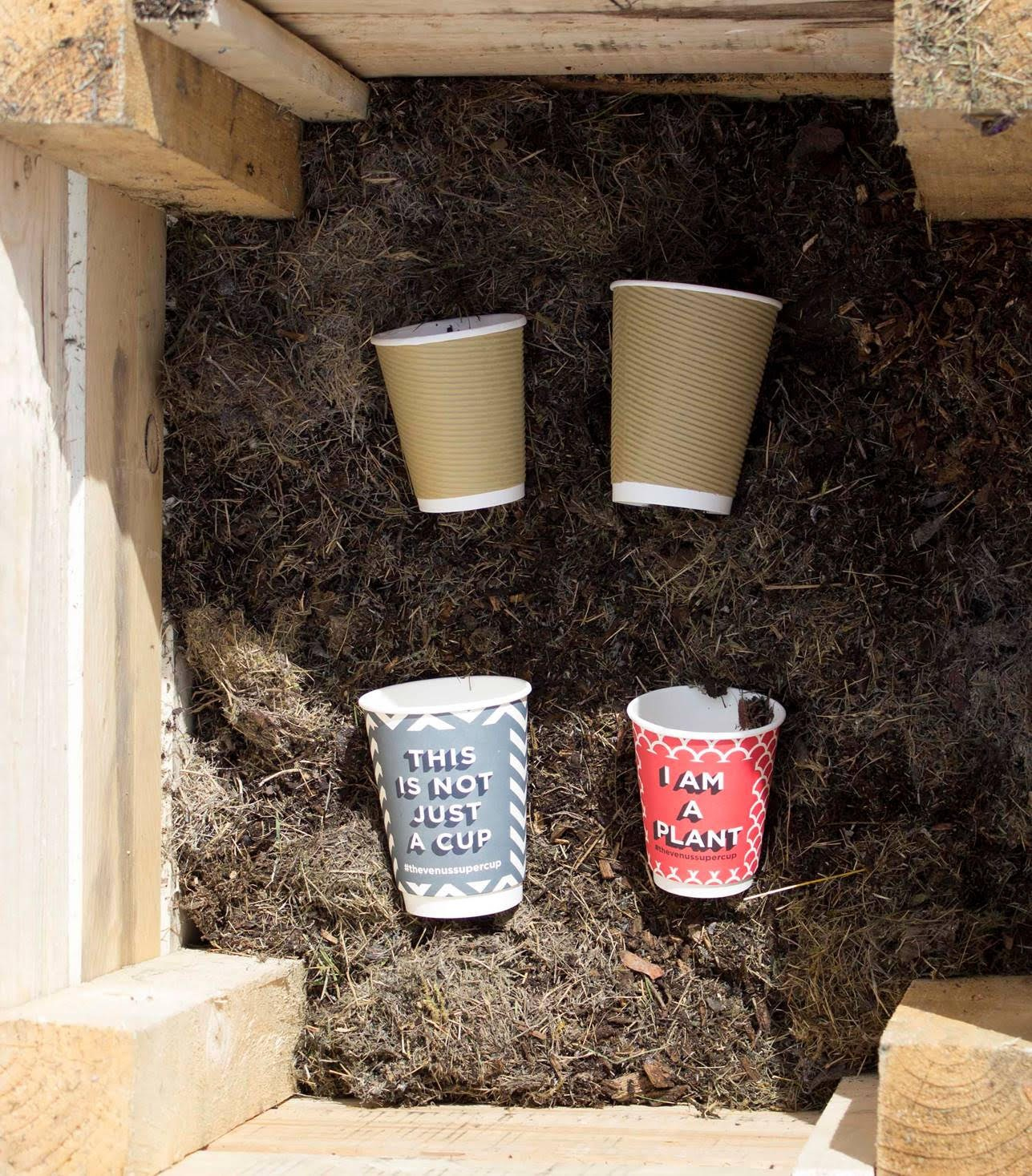HOW DOES A COFFEE CUP BECOME COMPOST, ENRICHING THE SOIL & ENHANCING PLANT GROWTH?
ANSWER: WHEN IT‘S HOME-COMPOSTABLE!
ENVIRONMENTAL CHAMPION, THE VENUS COMPANY EXPLAINS THE BENEFITS OF USING BIODEGRADABLE HOME COMPOSTABLE FOOD PACKAGING TO HELP SAVE OUR PLANET.
The Venus Company (loving the beach®) with award-winning beach cafes located in stunning locations across South Devon is well known for doing everything it can to safeguard our beaches & oceans. With sustainable practices at its core, the company champions home compostable packaging and believes it’s essential for the hospitality and food industry to develop natural and renewable home compostable materials, such as corn, wood, fibre, grass, and leaves to help protect our planet for future generations.
Michael Smith – M/D Venus Company says: “Sustainability is part of our DNA, and we love the beach as a habitat, so taking care of it is integral to our business philosophy; it’s vital, therefore, for us to serve the most environmentally friendly food and packaging we possibly can. Our mission is to be the greenest café operator, so we want to help our customers understand the benefits of using home compostable packaging, which is more environmentally friendly, and educate people that eating with us at our beach cafes contributes to lower CO2 as well as helping to maintain our lovely Devon coastline and oceans.”
Venus source its sustainable packaging from Sovereign Partners Ltd. The company has almost 30 years of experience in the Food & Coffee To Go sector pioneering sustainable packaging such as wooden stirrers, wooden cutlery, hot drink cups and lids, 100% recycled napkins, home compostable cake wrappers and cling film, and other plastic-free products. Under their GoodLife® brand, Sovereign’s latest innovative hot cup product is plastic-free (no PE or PLA) hot cups that can be recycled in the local paper recycling stream with newspapers and cartons, or if preferred either home or industrially composted.
Sovereign’s Founder and Chairman Barbara Feldman, says: “One of my favourite topics is sustainable packaging and educating people on the many myths and misconceptions which are still out there and so confusing to consumers. You only have to google ‘plastic-free coffee cups’ and up comes loads of them – all lined with PLA - which is plastic! Just because it is made from plants, doesn’t mean it’s not plastic and what most people don’t realise is that PLA-lined packaging cannot be recycled or home-composted”.
She adds: “We partner with a well-respected manufacturer of sustainable packaging based in India who has patented their own special lining, and we call our cups TerraCups®. These cups are lined with a 100% plastic-free coating which allows the cups to be either home composted or recycled locally where they can be directly fed into a pulper to be used to make recycled paper.”
Why is Home Compostable so important?
The amount of energy required to run the industrial composting facility and the amount of footprint generated during the biodegrading process in an industrial composter is more than the energy required to manufacture PE-coated paper. That means running an industrial composter is more harmful to nature than natural biodegradation.
Michael Smith explains: “Switching to eco-friendly products should be a priority for everyone so we can work together to create a healthier planet. It’s simple to get started, cut down on what you buy that has detrimental effects, and follow the three "R's" - Reduce, reuse, and recycle to conserve natural resources and landfill space.”
He concludes: “Our home compostable palm plates, cake wrappers, and hot drinks cups and lids are made of components and materials that should fully decompose into the soil within a matter of weeks, leaving nothing behind but nutrient-rich compost for the garden. It’s perfect for our customers, particularly those who are avid gardeners who love to take their cups home to plant them with seeds and afterwards throw them on the compost heap knowing they are doing something positive for the environment.”

